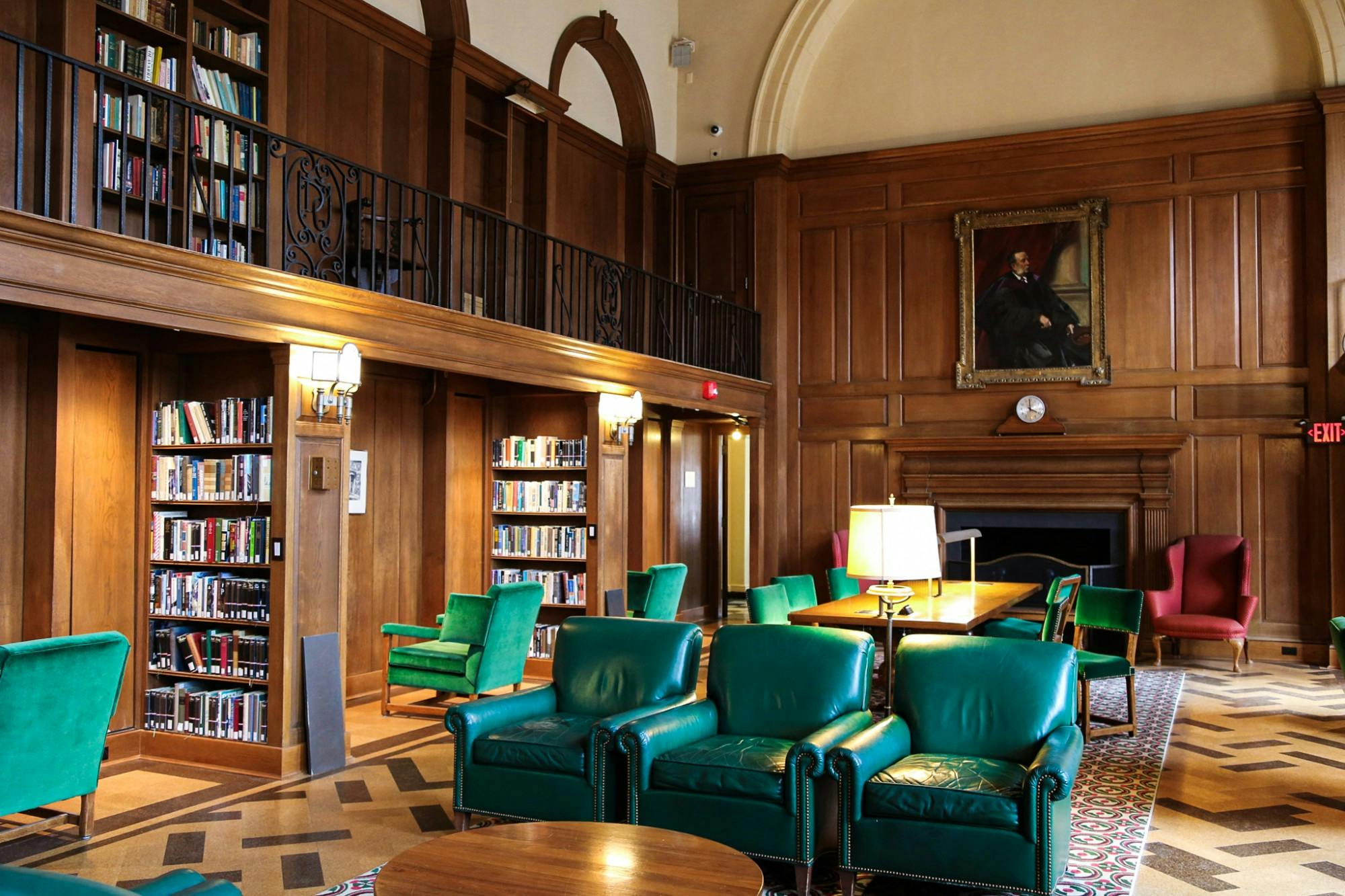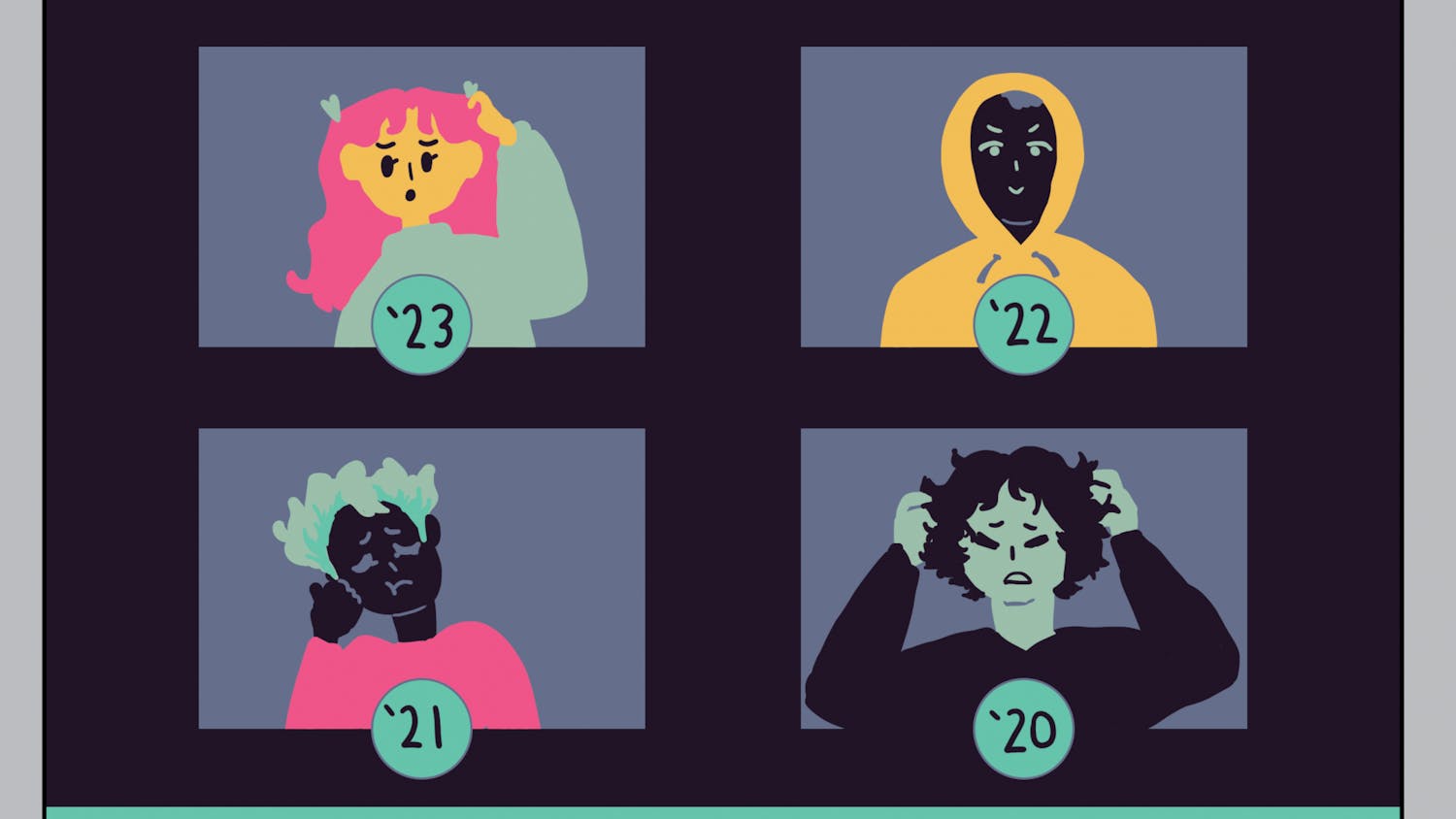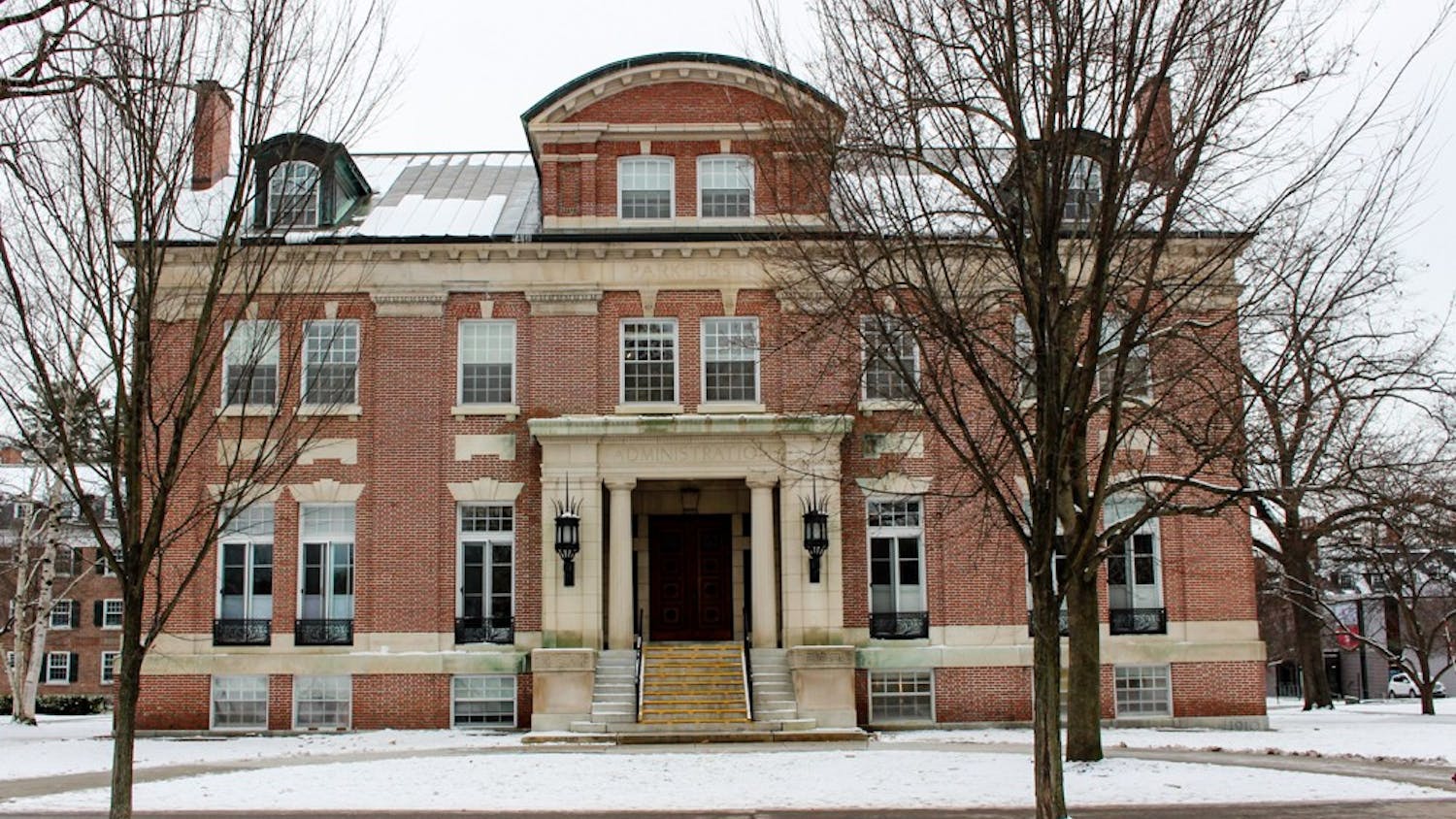If there’s one thing that this coronavirus situation has made me think about, it’s how much space I take up, both on Dartmouth’s physical campus and in the community.
At Dartmouth, whether we think about it or not, we’re often defined by the spaces we inhabit. Where do you live, and what kind of building is it? Where do you eat on campus? Which academic buildings do you spend the most time in? Just imagine someone who lives in a dorm, exclusively eats at Foco and spends most of their time in Thayer. Even without knowing anything else about this person, you might have an idea of what they’re like — and they’re definitely not the same kind of person who lives in a Greek house, exclusively eats at KAF and spends their days in Rocky.
For what it’s worth, I spend most of my time on FFB, and as a result I tend to eat at either KAF or Novack. I’ve lived in my Greek house since sophomore summer, and, if you tally up the hours, I’ve probably spent multiple weeks of my life inside Dartmouth Hall.
When it comes to space, it’s important to consider not just the spaces we inhabit, but the ways in which we do so. Take the above examples. On FFB, I’m comfortable enough to leave my things unattended and use a second chair as a leg rest. In my fraternity, my room is distinctly a private space and not a “social” room. In Dartmouth Hall, I might walk across a single hallway and attempt to speak with three different professors in three different languages. Others might inhabit some of these same spaces, but in a very different way.
Right before spring break, when it was announced that at least the first half of spring term would be online and that the majority of students were to leave campus ASAP, I already started to reflect on the physical space I took up. Since I lived in my fraternity, I was afforded a bit more time than most to figure out my plans, and in a strange turn of events, I was approved for interim housing in the dorms despite never explicitly applying for it. I had sent a message to the interim care team asking about meals, clarifying that I was living in a privately owned house (where, at the time, I believed I’d be able to stay indefinitely), and when I finally got a reply, I was notified that I’d be assigned to a dorm room shortly and would have to pick up my key.
Let me say right now that I’m very grateful to have been granted interim housing. I didn’t know then that living in a privately owned Greek house for spring term wasn’t a viable option — I don’t think anyone did — and I have since moved into my assigned room, my first time living in a dorm since my sophomore spring.
Gratitude wasn’t the only emotion I felt, however. I also felt guilt, and a lot of it. Sure, I can check off a lot of boxes when it comes to marginalized identities, and given the fact that I’m attending Dartmouth on a full scholarship, I suspect that I probably would have been granted interim housing had I intentionally applied for it. But the fact is, without really trying, I was approved to stay on campus when so many of my friends — fellow first-generation, low-income students and international students — had to send email after email fighting to stay on campus. Some eventually found success, but many others didn’t.
I can’t help but feel guilty that so many of my friends in “worse” situations than my own, friends who might have benefited from staying on campus more than I did, were forced to leave. Here I was, taking up physical space on campus and feeling like, maybe, I wasn’t the person who most deserved it.
I lived on campus for all of spring break, and it became somewhat surreal seeing everything change so quickly. Take the Hop, for example, which was the only dining facility open during the interim period. At first, it was business as usual; then, it became carry-out only; then, for sanitary measures, students would actually swipe their own ID cards at the register. The cashier sat at a different table, a healthy six feet away, ready to assist from a distance.
My friends kept leaving. Some I knew would leave, and I got the opportunity to say some form of goodbye. Others left unexpectedly and last-minute — even friends who had also been approved to stay. Friends that I perhaps naively believed were “in this together” with me for the long haul. Every time someone asked me what my plans were, I felt the need to emphasize that my plans weren’t changing anytime soon, because it seemed that everyone else’s plans had.
Over break, I started thinking of another way in which we all take up space at Dartmouth: the less tangible “space” we take up within the community, as well as the ways in which we support one another. There were multiple group chats for students who wanted to stay in the area for spring term. In some of these chats, people brought up housing opportunities and food resources for students and community members who suddenly didn’t know where to go. In others, students would reassure their classmates when a confusingly worded email or sudden change in financial aid added even more worry and frustration. Some students even took it upon themselves to spearhead community organizing efforts in the Upper Valley. In these chats, I witnessed some of the best examples I’ve ever seen of the Dartmouth community being there for each other.
Unfortunately, there were also arguments in some of these group chats. For example, some students wanted to return to campus after break, and others criticized them for not taking the pandemic seriously enough. It became clear that differences in socioeconomic status, privilege and individual ethics would continue to divide the Dartmouth student population, like they always have.
What was my role in all of this? It would be nice to take credit for the best parts of these group chats, but alas, that’s not the case. Throughout break, I tried my best to be helpful, answer questions and support my classmates, but I was never sure if I was overdoing it. I was eager to help, and I knew that I had enough emotional stamina to do so, while others might have already been pushed past their limits. But I, as a relatively privileged student among the pool of people still on campus, didn’t want to drown out the voices of others. I didn’t want to take up too much space.
So, while I took up some space, I didn’t let myself take up more than I thought I needed to. I spent a lot of time by myself, lying in bed, playing video games and watching endless YouTube videos. There were some days when the most productive thing I would do was shower and get dressed for my daily walk outside to grab food. I was thankfully able to maintain many of my on-campus jobs, and I spent a good chunk of my time working remotely for both the Italian department and the Rassias Center as a senior drill instructor.
I was very intentional about staying positive and sharing that positivity with others. It sounds trivial, but I deliberately made sure that all of my Instagram stories were lighthearted, because I didn’t want to contribute to the never-ending posts of worry and frustration that flooded my social media feeds. When I saw friends at the Hop, I would smile and tell them that I was doing just fine — because I genuinely was. However, I was also aware that a lot of my friends were doing the opposite of “just fine,” and sometimes I had to remind myself to avoid seeming too happy, lest I end up making a friend feel even worse.
Am I just overthinking everything? Probably, at least a little bit. As a journalist, one of my main goals has always been to amplify the voices of others, especially those who might not otherwise be heard. And yet here I am, writing this column that features no voice but my own, and the whole thing feels a tad self-indulgent. I’m certainly taking up my fair share of journalistic space, too.
Dartmouth — and I can’t believe I’m saying this in my senior spring — will take some time to get used to, especially when we separate the physical space from the more abstract, nebulous space that is the Dartmouth “community.” I’ve taken up a lot of different spaces during my time here, and I even defined myself by those spaces despite subconsciously telling myself otherwise. I lived in a certain place, I studied in certain places, I took classes in certain places — that’s who I was, right?
Even though I’m still on campus, most of those physical spaces are now behind locked doors, so perhaps it’s time to reconsider my presence in the Dartmouth community, physical and otherwise. I wish I could tell you what that looks like, but you’ll have to get back to me at the end of the term to find out. In the meantime, though, I just hope I can continue to take up space in an intentional, responsible and empathetic way.
If I can do that, and if we all can, then maybe, just maybe, there will be enough space for all of us to get through this.




